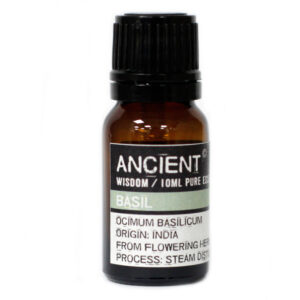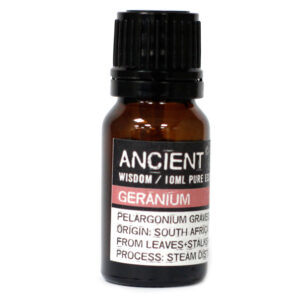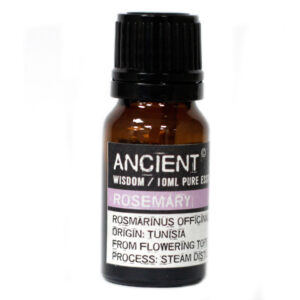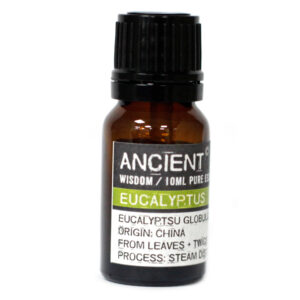
Description
Bergamot Essential Oil for Aromatherapy
Citrus Symphony: A Luminous Blend of Zest and Tranquillity
🍊 Mediterranean Muse: Harvested from the sun-drenched orchards of the Bergamot orange tree, our Bergamot Essential Oil is a liquid whisper of European summer. With every drop, experience the gentle blend of sun-soaked days and breezy coastal evenings.
💧 Elegance Unveiled: Bergamot’s distinctively fresh aroma flits between citrusy brightness and a subtle, spicy undertone. An olfactory journey, it captures the allure of a British high tea infused with a hint of Italian charm.
✨ Soothing Serenade: Prized in aromatherapy for its uplifting yet calming properties, Bergamot Oil is a balm for the restless spirit. It promises to dissipate anxieties, usher in clarity, and weave moments of pure, unadulterated relaxation.
🍃 Legacy of Luxe: With its roots in age-old European apothecary traditions, Bergamot has been the sophisticated choice for those seeking both aromatic allure and therapeutic wonders. Our oil carries forth this tradition, refined for the discerning modern individual.
🌍 Commitment to Craft: Passionate about both the impeccable quality and stewardship of nature, our Bergamot Essential Oil is sustainably extracted and ethically produced. This commitment ensures a genuine experience, attuned to the rhythms of our cherished British isles and beyond.
Usage Recommendations: Incorporate a few drops into your diffuser or gracefully blend with a carrier oil for an aromatic embrace. Observing dilution guidelines and performing a preliminary skin patch test is always wise.
Step into the Light of Bergamot’s Embrace. Experience the Aromatic Elegance of Europe.
Latin Name: Citrus Bergamia
Part Of Plant Used: Fruit Peel
Source: Ivory Coast
Extraction Method: Cold Expression
Additional information
| Weight | 0.04 kg |
|---|---|
| Size | 10ml, 50ml, 500ml |
You must be logged in to post a review.
Related Products
Related products
-

Basil Essential Oil
£5.75 – £139.95Price range: £5.75 through £139.95 Select options This product has multiple variants. The options may be chosen on the product page -

Geranium Essential Oil
£6.75 – £199.95Price range: £6.75 through £199.95 Select options This product has multiple variants. The options may be chosen on the product page -

Rosemary Essential Oil
£4.00 – £75.00Price range: £4.00 through £75.00 Select options This product has multiple variants. The options may be chosen on the product page -

Eucalyptus Essential Oil
£4.25 – £59.95Price range: £4.25 through £59.95 Select options This product has multiple variants. The options may be chosen on the product page
Bergamot Essential Oil for Aromatherapy: Benefits and Uses
Bergamot essential oil is a popular ingredient in aromatherapy due to its pleasant scent and potential health benefits. Extracted from the peel of the bergamot orange, this oil is known for its ability to promote relaxation, relieve stress, and uplift mood. It is also used in skincare, haircare, and as a flavoring agent in food and drinks.
Understanding the properties of bergamot essential oil is key to unlocking its potential benefits. Bergamot oil is composed of various chemical compounds, including limonene, linalool, and linalyl acetate, which are responsible for its unique aroma and therapeutic effects. In aromatherapy, it is often used to promote relaxation and reduce anxiety, as well as to improve digestion and relieve pain.
When used properly, bergamot essential oil can be a valuable addition to anyone’s wellness routine. However, it is important to be aware of safety precautions and potential side effects before using it. In this article, we will explore the various benefits and uses of bergamot essential oil, as well as its potential risks and how to use it safely.
Key Takeaways
- Bergamot essential oil is a popular ingredient in aromatherapy due to its pleasant scent and potential health benefits.
- The chemical compounds in bergamot oil are responsible for its unique aroma and therapeutic effects, which include promoting relaxation, reducing anxiety, and improving digestion.
- While bergamot oil can be a valuable addition to one’s wellness routine, it is important to be aware of safety precautions and potential side effects before using it.
Understanding Bergamot Essential Oil
Bergamot essential oil is a cold-pressed oil extracted from the peel of the bergamot fruit (Citrus bergamia), which is a type of citrus fruit. It is a popular oil used in aromatherapy due to its many benefits.
Properties of Bergamot Essential Oil
Bergamot essential oil has a light, citrusy scent and is known for its uplifting and calming properties. It is also antiseptic, antispasmodic, and analgesic. The oil is pale greenish-yellow in colour and is thin in consistency.
Uses of Bergamot Essential Oil
Bergamot essential oil is commonly used in aromatherapy to help with anxiety, depression, and stress. It is also used to help with skin conditions such as eczema and psoriasis, and it can be used as a natural deodorant due to its fresh scent. Bergamot essential oil is also a common ingredient in perfumes, colognes, and other personal care products.
Safety Precautions
Bergamot essential oil is generally considered safe for use in aromatherapy when used properly. However, it is important to note that bergamot essential oil can be phototoxic, which means that it can cause skin irritation or sensitivity when exposed to sunlight. It is recommended to avoid using bergamot essential oil on the skin before going out in the sun or to use a high-quality, pure oil that has been properly diluted.
Quality and Purity
When purchasing bergamot essential oil, it is important to look for a high-quality, pure oil that has been properly distilled. Poor quality oils may be adulterated with synthetic chemicals or other oils, which can reduce the effectiveness of the oil and even cause harm. Look for oils that are labelled as 100% pure and have been tested for purity and quality.
Overall, bergamot essential oil is a versatile and popular oil used in aromatherapy and personal care products. Its many benefits and pleasant scent make it a great addition to any essential oil collection.
Extraction and Composition
Bergamot essential oil is extracted from the peel of the bergamot fruit, Citrus bergamia. The fruit is primarily grown in Italy and is a cross between a sour orange and lemon. The oil is extracted through cold pressing, which involves mechanically extracting the oil from the peel without the use of heat or chemicals.
The composition of bergamot essential oil is complex, with over 350 chemical compounds identified. The main constituents of bergamot essential oil are linalool, limonene, and linalyl acetate. These compounds are responsible for the oil’s characteristic citrus aroma and therapeutic properties.
Bergamot essential oil also contains a compound called bergapten, which can increase the skin’s sensitivity to sunlight. However, there are bergapten-free versions of bergamot essential oil available that have had the compound removed through a process called rectification.
The table below shows the approximate composition of bergamot essential oil:
| Compound | Percentage |
|---|---|
| Linalool | 30-40% |
| Limonene | 25-35% |
| Linalyl acetate | 20-25% |
| Bergapten | <0.1% |
Overall, bergamot essential oil is a versatile oil that is widely used in aromatherapy for its calming and uplifting properties. Its complex composition makes it a valuable addition to any essential oil collection.
Aromatherapy and Mood Enhancement
Aromatherapy is a holistic practice that involves the use of essential oils to enhance physical and emotional well-being. Bergamot essential oil is one of the most popular essential oils used in aromatherapy due to its mood-enhancing properties.
Studies have shown that inhaling bergamot essential oil can help reduce stress and anxiety levels, promoting a sense of calm and relaxation. It is also believed to help alleviate symptoms of depression by uplifting the mood and promoting feelings of joy.
Bergamot essential oil has refreshing and uplifting properties that can help boost confidence and promote a sense of balance and strength. Its citrusy aroma is also known to help increase energy levels, making it an excellent choice for those who need a quick pick-me-up.
When used in aromatherapy, bergamot essential oil can be diffused into the air or applied topically. It is important to note that essential oils should always be diluted before applying them to the skin to avoid irritation or allergic reactions.
Overall, bergamot essential oil is a versatile and effective tool for enhancing mood and promoting emotional well-being in aromatherapy.
Skin and Hair Benefits
Bergamot essential oil has been used for centuries as a natural remedy for various skin and hair conditions. It is known for its antiseptic, antibacterial, and anti-inflammatory properties, making it an excellent addition to any skincare or haircare routine.
Skin Benefits
Bergamot oil is commonly used to treat acne and other skin conditions. Its antibacterial properties help to kill the bacteria that cause acne, while its anti-inflammatory properties help to reduce redness and swelling associated with acne breakouts.
In addition to acne, bergamot oil is also effective in soothing skin inflammation and irritation caused by conditions such as psoriasis and eczema. It can also help to reduce the appearance of scars and blemishes on the skin.
Hair Benefits
Bergamot essential oil is also beneficial for the hair. It is commonly used to soothe an itchy and irritated scalp, as well as to promote hair growth. Its antiseptic properties help to keep the scalp clean and free from bacteria, which can lead to dandruff and other scalp conditions.
Bergamot oil is also effective in treating hair loss and promoting hair growth. It helps to stimulate blood flow to the hair follicles, which in turn promotes the growth of new hair.
To use bergamot oil for hair growth, simply add a few drops to your shampoo or conditioner and massage into your scalp. You can also mix it with a carrier oil such as coconut oil and massage it into your scalp before washing your hair.
Overall, bergamot essential oil is a versatile and effective natural remedy for various skin and hair conditions. However, it is important to use it in moderation and to dilute it with a carrier oil before applying it to the skin or hair, as it can cause skin irritation when used in its pure form.
Antibacterial and Healing Properties
Bergamot essential oil has been found to possess antibacterial properties that make it useful in fighting against harmful bacteria. According to a study published in the Journal of Applied Microbiology, bergamot oil was found to be effective against a range of bacteria, including Staphylococcus aureus, Escherichia coli, and Pseudomonas aeruginosa. These bacteria are known to cause a range of infections, including skin infections, urinary tract infections, and respiratory infections.
In addition to its antibacterial properties, bergamot oil has also been found to have healing properties that can aid in wound healing. Bergamot oil contains several compounds that have been shown to have wound-healing activities, including alpha-pinene, limonene, and linalool. These compounds have been found to promote the growth of new skin cells and to reduce inflammation, which can help to speed up the healing process.
The wound-healing properties of bergamot oil also make it useful in treating acne and other skin conditions. Bergamot oil can be used as a spot treatment for acne, as it can help to reduce inflammation and redness, and to promote the healing of blemishes.
Overall, bergamot essential oil has a range of antibacterial and healing properties that make it a useful addition to any aromatherapy routine. However, it is important to note that bergamot oil should always be used in moderation, as it can cause skin irritation in some individuals. It is also important to consult with a healthcare professional before using bergamot oil, especially if you are pregnant or have a medical condition.
Bergamot in Food and Drink
Bergamot essential oil is commonly used in food and drink for its citrusy flavour and aroma. It is often used in Earl Grey tea, which is a black tea flavoured with bergamot oil. The oil is also used in baking, especially in Italian cuisine, to add a distinct citrus flavour to cakes, cookies, and other desserts.
Bergamot oil can be added to water for a refreshing and flavourful drink. It can also be added to cocktails and other alcoholic beverages for a unique twist on classic recipes. However, it is important to note that bergamot oil should be used sparingly in food and drink as it can be toxic in large amounts.
In addition to its culinary uses, bergamot oil is also known for its digestive benefits. It can be added to food or drink to help alleviate digestive issues such as bloating, cramping, and indigestion. However, it is important to consult with a healthcare professional before using bergamot oil for medicinal purposes.
Overall, bergamot oil is a versatile ingredient that can be used in a variety of food and drink recipes. Its citrusy flavour and aroma make it a popular choice for those looking to add a unique twist to their favourite dishes.
Bergamot in Perfumery and Cosmetics
Bergamot essential oil is a popular ingredient in the perfume and cosmetics industry. Its fresh, citrusy scent adds a unique and uplifting aroma to fragrances, colognes, and body care products.
Perfume and Fragrance: Bergamot essential oil is a top note in many perfumes and fragrances. It blends well with other essential oils such as lavender, lemon, and sandalwood, creating a complex and alluring scent. Its fresh and bright aroma makes it a popular choice for both men’s and women’s fragrances.
Cosmetics: Bergamot essential oil is also used in cosmetics such as body wash, shampoo, and deodorant. Its antibacterial properties make it an effective ingredient in deodorants, while its uplifting scent adds a refreshing aroma to body washes and shampoos.
Air Fresheners: Bergamot essential oil is a common ingredient in air fresheners and room sprays. Its citrusy scent helps to eliminate unpleasant odours and freshen up any space.
It’s important to note that bergamot essential oil is phototoxic, meaning it can cause skin irritation and sensitivity when exposed to sunlight. Therefore, it’s typically used in products that are not applied directly to the skin or in low concentrations.
Overall, Bergamot essential oil is a versatile and popular ingredient in the perfume and cosmetics industry, adding a fresh and uplifting scent to a variety of products.
Safety and Precautions
Bergamot essential oil is generally safe to use, but it is important to take precautions to ensure that it is used correctly. Here are some safety tips to keep in mind:
Dilution
Bergamot essential oil should always be diluted before use. It is recommended to use a carrier oil such as coconut or jojoba oil to dilute the essential oil. The general rule of thumb is to use a 2% dilution, which means adding 12 drops of essential oil to 1 fluid ounce of carrier oil.
Photosensitivity
Bergamot essential oil is photosensitive, which means it can cause skin sensitivity when exposed to sunlight. It is recommended to avoid applying bergamot essential oil to the skin before going out in the sun. If you must use bergamot essential oil on your skin, make sure to wait at least 12 hours before exposing your skin to sunlight.
Pregnancy and Children
Bergamot essential oil should be avoided during pregnancy as it may cause contractions. It should also not be used on babies and young children.
Dermatitis
Bergamot essential oil may cause skin irritation or dermatitis in some people. It is recommended to perform a patch test before using bergamot essential oil to check for any skin sensitivity or allergic reactions.
Production and FDA
When purchasing bergamot essential oil, it is important to buy from a reputable source to ensure the quality and purity of the oil. The FDA does not regulate essential oils, so it is important to do your research and choose a trusted supplier.
In summary, bergamot essential oil can provide many benefits for aromatherapy, but it is important to use it safely and correctly. Always dilute the oil, avoid using it before sun exposure, and avoid using it during pregnancy or on young children. If you experience any skin sensitivity or allergic reactions, discontinue use immediately.
Other Uses and Benefits
In addition to the benefits mentioned earlier, Bergamot Essential Oil has a range of other potential uses and benefits. Here are some of them:
- Home Freshener: Bergamot Essential Oil has a fresh, citrusy scent that makes it a great natural alternative to chemical air fresheners. Simply add a few drops of the oil to a diffuser or spray bottle filled with water and spritz around the house.
- Clear Skin: Bergamot Essential Oil’s antiseptic and antibacterial properties make it useful for treating skin conditions such as acne, eczema, and psoriasis. It can also help to reduce the appearance of scars and blemishes.
- Natural Pain Relief: Bergamot Essential Oil has analgesic (pain-relieving) properties, making it useful for treating headaches, muscle aches, and other types of pain. Simply dilute a few drops of the oil in a carrier oil and apply to the affected area.
- Cold and Flu Relief: Bergamot Essential Oil’s antiviral and antibacterial properties make it useful for treating colds, flu, and other respiratory infections. It can help to relieve congestion and coughing, and may also help to boost the immune system.
- Digestive Discomfort: Bergamot Essential Oil can help to soothe digestive discomfort such as bloating, gas, and indigestion. Simply dilute a few drops of the oil in a carrier oil and massage into the abdomen.
- Fight Fatigue: Bergamot Essential Oil’s uplifting scent can help to combat fatigue and boost energy levels. Simply add a few drops of the oil to a diffuser or inhale directly from the bottle.
- Mental Health: Bergamot Essential Oil has calming and mood-lifting properties, making it useful for treating anxiety, depression, and other mental health conditions. It can also help to promote relaxation and restful sleep.
- Freshen Breath: Bergamot Essential Oil’s antibacterial properties make it useful for freshening breath and preventing bad breath. Simply add a few drops of the oil to a glass of water and use as a mouthwash.
- Cholesterol and Liver Health: Bergamot Essential Oil may help to lower cholesterol levels and improve liver function. It contains compounds that have been shown to have a positive effect on these areas of health.
- Medicines: Bergamot Essential Oil may interact with certain medications, including antidepressants and blood thinners. If you are taking any medications, it is important to check with your doctor before using Bergamot Essential Oil.

















Reviews
There are no reviews yet.